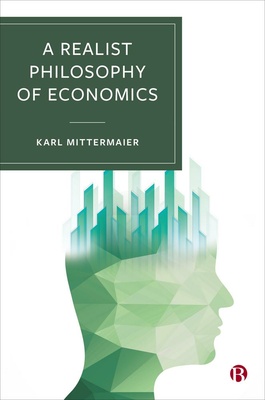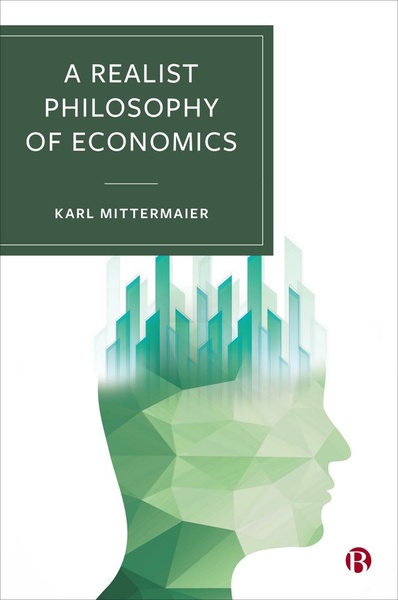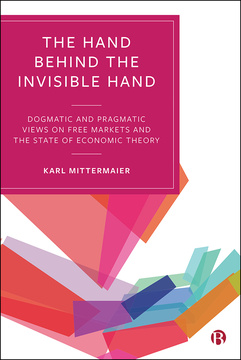A Realist Philosophy of Economics
By Karl Mittermaier
Published
Sep 22, 2023Page count
204 pagesISBN
978-1529234404Dimensions
234 x 156 mmImprint
Bristol University PressPublished
Sep 22, 2023Page count
204 pagesISBN
978-1529234435Dimensions
234 x 156 mmImprint
Bristol University PressEPUB and EPDF available Open Access under CC-BY-NC-ND licence.
Economic theory relies heavily on the idea of rational action, but how are we to understand the empirical content of rational choice when we can only observe the outcome, not what goes into making the choice?
With contributions from Alan Kirman and Rod O'Donnell, Karl Mittermaier's posthumously published work establishes a new conceptual framework that will enable economic theorists to forge new paths of empirical analysis.
Introducing readers to the work of a profound thinker who was not recognized in his lifetime, this book, featuring previously unpublished material, is poised to become a seminal text in the philosophy of social sciences.
"Seldom will an almost-lost time capsule from 50 years ago have been as prescient, original and thought-provoking as this book. This is a significant contribution to the methodology of economics that anyone with even a passing interest in the subject should read." Jochen Runde, University of Cambridge
"This is not merely a work in economic methodology; it should be regarded as a classic in the philosophy of economics. Truly outstanding!" Nils Goldschmidt, University of Siegen
Karl Mittermaier (1938–2016) was affiliated with the University of the Witwatersrand, Johannesburg, for over thirty years until 2002 when he retired.
Foreword - Isabella Mittermaier
Extended Preface: A Realistic Attitude to the Economy - Alan Kirman
Prologue: Mittermaier’s Conceptual Framework - Rod O’Donnell
1. Institutions and the Empirical Content of Economics
2. Ex Post and Ex Ante Facts
3. Structure and Equilibrium
4. Rational Action
5. Variant Conceptions of Preferences
6. The Genetic Understanding and Institutions













